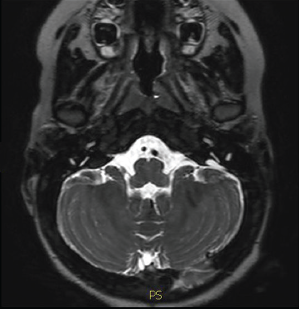A new study has linked chronic conductive hearing loss with speech recognition deficits.


A new study has linked chronic conductive hearing loss with speech recognition deficits.

Defining significant asymmetric sensorineural hearing loss (ASNHL) is important to determine if a patient requires further evaluation for retrocochlear pathology.

Pursuing MRI in patients with documented ASNHL is more cost-effective than observation
Patients with an unexplained, asymmetric sensorineural hearing loss are significantly more likely to have an abnormal MRI scan

Disagreement exists regarding the cost-effectiveness and necessity of an initial GdT1W MRI

Gadolinium contrast enhanced T1 weighted magnetic resonance imaging (GdT1W MRI) is the most widely accepted evaluation for asymmetric sensorineural hearing loss (ASNHL)